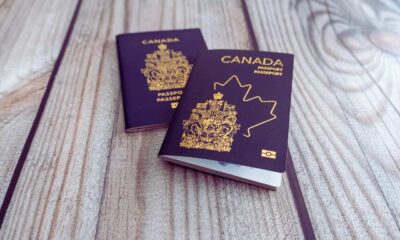Immigrate to Canada
Permanent Residency: 5 Paths for International Students in Canada

Canada has earned a reputation as a top destination for international students seeking high-quality education and promising career prospects. As these students complete their studies, they often aspire to transition from temporary student status to permanent residency in Canada. Fortunately, there are several pathways available to help them achieve this goal. In this article, we’ll explore five permanent residency options tailored specifically for international students.
1. Express Entry Program
The Express Entry system serves as a common pathway to permanent residency for skilled workers, including foreign graduates. This points-based system evaluates candidates on various criteria such as age, education, work experience, language proficiency, and adaptability. Notably, recent changes in the Express Entry system prioritize individuals proficient in French and those with at least six months of work experience in specific occupations.
Key Pathways under Express Entry for International Graduates
- Canadian Experience Class (CEC): Graduates who accumulate at least 52 weeks of work experience in eligible occupations can qualify for CEC. Proficiency in English or French is essential, with higher language requirements for certain occupations.
- Federal Skilled Workers Program (FSWP): Foreign graduates with Canadian education can accrue points under FSWP. Eligibility criteria include a minimum of one year of work experience in designated occupations and proficiency in English or French.
2. Provincial Nominee Program (PNP)
Canadian provinces offer Provincial Nominee Programs (PNPs) with streams designed to accommodate foreign graduates. PNPs provide a route to permanent residency for graduates who meet provincial requirements. Notably, obtaining a provincial nomination significantly enhances an applicant’s profile within the Express Entry system.
Maximize Your IELTS Score:
Start your English journey: Learn English with British Council teachers — Up to 10% off
English Online Self-Study course: Learn English at your own pace with bite-sized exercises — Up to 10% off
Prepare for IELTS with the experts: Get the score you need with the co-creator of the IELTS test- Up to 15% off
Examples of PNPs Offering Opportunities for International Graduates
- Alberta Advantage Immigrant Program (AAIP)
- British Columbia Provincial Nominee Program (BCPNP)
- Ontario Immigrant Nominee Program (OINP)
- Manitoba Provincial Nominee Program (MPNP)
- Newfoundland and Labrador Provincial Nominee Program (NLPNP)
And more….
3. Atlantic Immigration Program (AIP)
The Atlantic Immigration Program (AIP) aims to address labour shortages in Canada’s Atlantic provinces by facilitating the hiring of qualified foreign workers and recent graduates. This joint initiative between the federal government and four Atlantic provinces offers opportunities for permanent residency to eligible candidates.
4. Rural and Northern Immigration Pilot (RNIP)
The Rural and Northern Immigration Pilot (RNIP), now a permanent program, targets immigrants interested in settling in Canada’s smaller communities. International graduates can apply for permanent residency through special pathways offered by participating communities, each setting its own eligibility criteria.
5. Agriculture and Agri-Food Pilot
Canada’s Agriculture and Agri-Food Pilot Program provides skilled, non-seasonal workers in specific industries with a pathway to permanent residency. This initiative aims to tackle labour shortages in the agriculture sector by facilitating the long-term settlement of eligible candidates. Canada offers a diverse range of permanent residence pathways for international students.
Whether through the Express Entry system, Provincial Nominee Programs, or specialized immigration pilots, there are ample opportunities for graduates to build their futures in Canada. By understanding and exploring these pathways, international students can embark on their journey towards permanent residency with confidence and optimism.






















